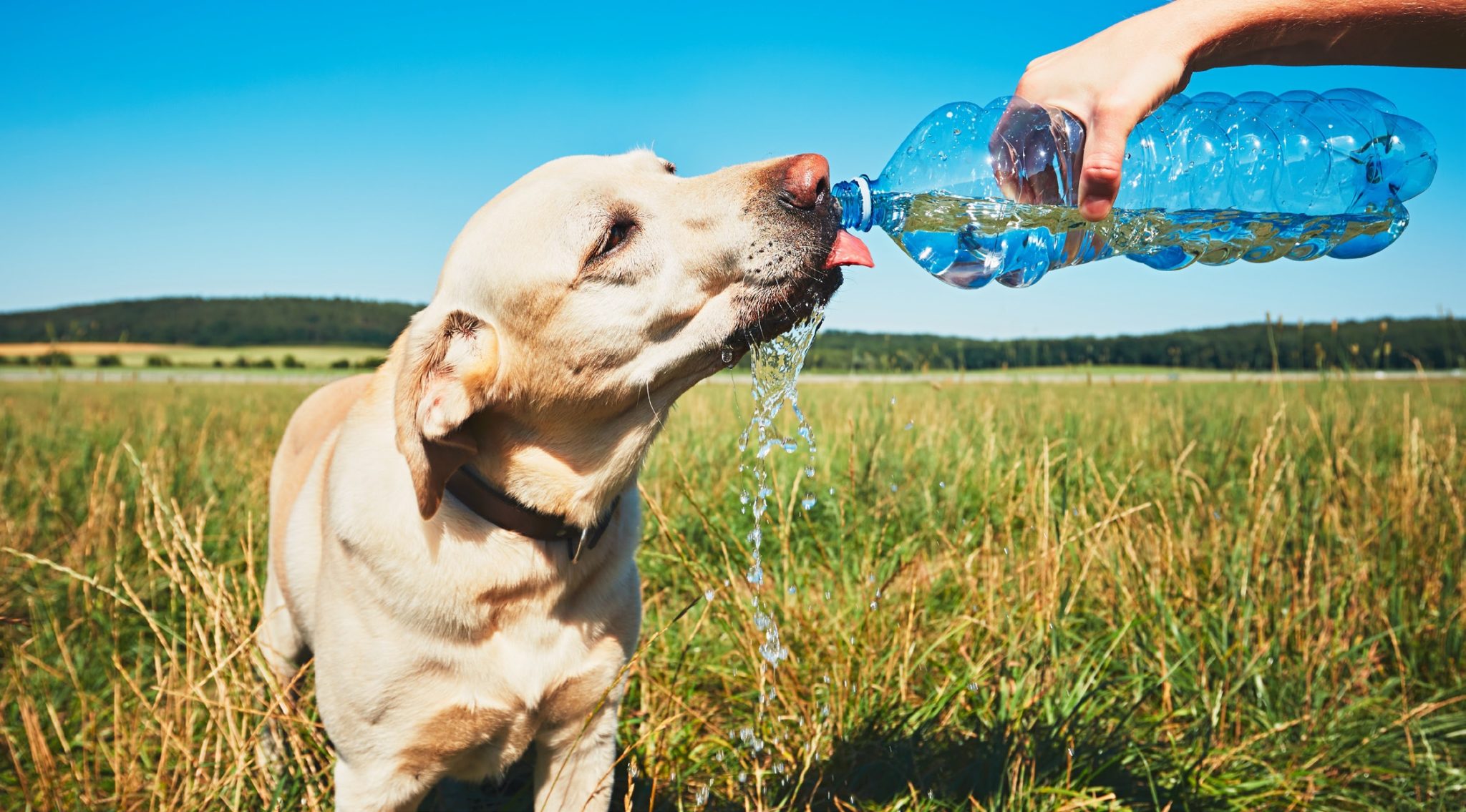Heat stress can develop quickly in pets and livestock, and can be lifethreatening. Heat stress occurs when an animal’s body is unable to cool itself enough to maintain a healthy temperature.
Heat stroke
Heat stress can rapidly progress to heat stroke, which is a severe, lifethreatening condition where an animal’s core body temperature reaches 41 degrees Celsius or higher.
Susceptible breeds
While all animals are susceptible, heat stress often occurs in dogs – particularly dogs that are overweight or dogs from brachycephalic (shortnosed) breeds, such as Pugs, all types of Bulldogs and Boxers. Small pocket pets – like rabbits, guinea pigs and birds – and young animals like puppies and kittens are also especially susceptible.
Dogs don’t have the same ability to sweat like humans and rely primarily on panting to regulate their body temperature. In summer, animals need permanent access to multiple areas containing both water and shade.
The danger of cars
Never leave any animal locked inside a car – in summer or winter. In summer, the temperature inside a vehicle can rapidly rise to dangerous levels within minutes. This is true even if the car is parked in the shade with the windows down.
Signs of heat stress
Heat stress signs in dogs include vocalisation, panting excessively, bright red gums, and can progress to vomiting, uncoordinated walking, seizures, collapse and unconsciousness, which may result in death. Be aware that cats show
very similar signs of heat stress signs, although it can be harder to identify heat stress in cats.
If you suspect your pet is suffering from heat stress, you should immediately call you veterinarian for urgent medical advice.
Tips to keep your pets cool
Here are some tips to help keep your companion pet cool in summer and avoid any heat-related issues:
- During hot weather plan your car trips – can the car be kept cool? Can you travel outside the heat of the day? Have you packed enough water for your animals, and can you make frequent rest stops to check on their welfare?

- Ensure you walk dogs in the early morning or late evening when it’s cooler – this is crucial for any of the short-nosed breeds listed above. Doing this will ensure that any asphalt/concrete won’t be as hot under their paws, too.
- At home, allow access to additional shaded, cool areas.
- Make sure there are multiple bowls of fresh water available, in case one is knocked over or soiled.
- If possible, allow your outdoor animals to come inside the house to share the air conditioning or fan.
- Once inside the house, allow them to lie on cool surfaces such as bathroom tiles.
- Supervise your pet playing in paddling pools filled with water.
- Spray your pet bird with a mist pump spray bottle or install a birdbath. Supervise them and make sure the water is not too deep. If possible, move any birdcages to a cool part of the house.
- Move any rabbit or guinea pig huts to an area of grass which will be in the shade for the day. Bring your pets inside into the air-conditioning or fan in a carrier if possible.
- Freeze plastic bottles half bottles full of ice, fill the remainder with water and place in your rabbit or guinea pigs shaded enclosure. This will allow your pocket pets to cool by lying on, or next to, the cool ice bottles.
Heat stress is best avoided, and by following the tips above and keeping activity to a minimal on hot days you can help protect your pets. However, if you think your pet is suffering from heatstroke, please call us or the local veterinary hospital where you are holidaying immediately.


